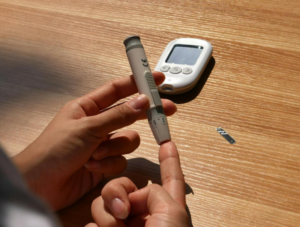Considering participating in a clinical trial is a significant step towards potentially accessing new treatments and contributing to medical science. However, it’s completely natural to have questions or feel uncertain. Many people encounter information about clinical trials that sounds complex or even intimidating. At pRxEngage, we believe that clear information empowers better health decisions.
Unfortunately, several common myths circulate about clinical trials, causing unnecessary apprehension. Let’s separate fact from fiction and address some of these misconceptions head-on, so you can approach the possibility of participation with confidence.

Myth 1: “Clinical trial participants are treated like guinea pigs.”
- Reality: Participant safety, dignity, and well-being are the absolute top priorities in clinical research.One of the most pervasive fears is being experimented on without care or respect. The reality is vastly different. Clinical trials operate under stringent ethical guidelines and regulatory oversight specifically designed to protect participants. Before you agree to anything, the research team provides comprehensive information about the trial’s purpose, procedures, potential risks and benefits, and your rights. This critical process is known as informed consent. It’s an ongoing dialogue ensuring you understand everything involved before deciding to participate. Furthermore, independent ethics committees (Institutional Review Boards or IRBs) review and monitor trials to ensure they are conducted ethically and safely. You are viewed as a valued partner in the research process, not just a subject, and your health always comes first.
Myth 2: “The treatments in trials are unsafe or might not work.”
- Reality: Treatments undergo extensive testing beforehuman trials begin, and trials are designed to rigorously evaluate both safety and effectiveness. While clinical trials investigate new treatments, these interventions aren’t untested guesses. They have already passed through substantial preclinical testing, often involving laboratory research and animal studies, to establish a basic safety profile before being considered for human trials. Clinical trials themselves are carefully structured in phases to gather more data systematically. Early phases focus heavily on safety, while later phases compare the new treatment against standard options or a placebo to determine if it’s truly effective. It’s also important to remember that participants receive diligent medical care and monitoring throughout the trial, often more frequently than standard care, which helps manage any side effects promptly. While no treatment guarantees success, trials are the essential process for determining if a new therapy is safe and offers real benefits.

Myth 3: “Participating in a clinical trial means long stays in a hospital.”
- Reality: Most clinical trials do not require hospitalization and are conducted in outpatient settings like clinics or doctor’s offices.The image of trial participation involving lengthy hospital confinements is largely inaccurate. While protocols vary depending on the specific study and treatment, many trials involve regular visits to a research clinic or medical facility, similar to specialist appointments. Some trials even incorporate virtual check-ins or utilize remote monitoring technologies, allowing for greater flexibility. The key is finding a trial whose logistics fit reasonably well with your life. Resources like pRxEngage are designed to help you identify trials that match not only your medical needs but also your location and lifestyle preferences.
Myth 4: “Once I join a trial, I’m locked in until the end.”
- Reality: Participation in any clinical trial is entirely voluntary, and you have the absolute right to withdraw at any time, for any reason.You are always in control of your decision to participate. While researchers hope participants can complete the trial to ensure robust data, they fully understand that circumstances change. Whether you experience unexpected side effects, find the schedule too demanding, or simply change your mind, you can leave the trial without penalty or any negative impact on your access to standard medical care. Research teams strive to support participants throughout the study, offering flexibility and resources to help them complete the trial if they wish, but the ultimate decision always rests with you.
Why Participate Despite the Myths?
Understanding the reality behind these misconceptions highlights the true nature of clinical trials: carefully regulated research focused on advancing medicine while prioritizing participant well-being. People choose to participate for compelling reasons:
- Gaining access to potentially life-changing treatments not yet widely available.
- Playing an active role in finding solutions and helping others facing similar health challenges.
- Receiving focused medical attention and learning more about their condition.
Patient engagement surveys consistently show that participants who feel informed, supported, and respected have more positive trial experiences.
Conclusion: Empowerment Through Information
Navigating healthcare decisions requires clear, accurate information. By debunking common myths, we hope to replace uncertainty with understanding about the realities of clinical trials. At pRxEngage, we believe in empowering every individual to make informed choices about their health journey. We’re committed to simplifying the process, providing trustworthy resources, and fostering a community built on confidence and support.
Clinical trials represent more than just research; they embody hope, progress, and the power of partnership between patients and science.
Ready to explore further or find a trial that might be right for you? Visit pRxEngage today. Let us help you access information, get your questions answered, and feel empowered on your path to better health.
